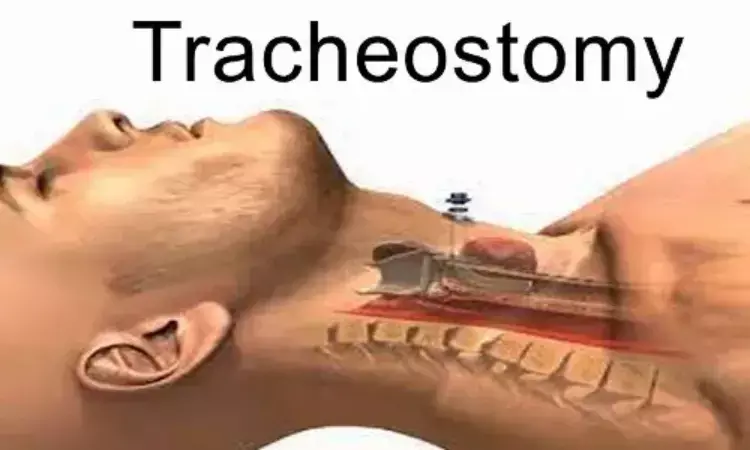- Home
- Medical news & Guidelines
- Anesthesiology
- Cardiology and CTVS
- Critical Care
- Dentistry
- Dermatology
- Diabetes and Endocrinology
- ENT
- Gastroenterology
- Medicine
- Nephrology
- Neurology
- Obstretics-Gynaecology
- Oncology
- Ophthalmology
- Orthopaedics
- Pediatrics-Neonatology
- Psychiatry
- Pulmonology
- Radiology
- Surgery
- Urology
- Laboratory Medicine
- Diet
- Nursing
- Paramedical
- Physiotherapy
- Health news
- Fact Check
- Bone Health Fact Check
- Brain Health Fact Check
- Cancer Related Fact Check
- Child Care Fact Check
- Dental and oral health fact check
- Diabetes and metabolic health fact check
- Diet and Nutrition Fact Check
- Eye and ENT Care Fact Check
- Fitness fact check
- Gut health fact check
- Heart health fact check
- Kidney health fact check
- Medical education fact check
- Men's health fact check
- Respiratory fact check
- Skin and hair care fact check
- Vaccine and Immunization fact check
- Women's health fact check
- AYUSH
- State News
- Andaman and Nicobar Islands
- Andhra Pradesh
- Arunachal Pradesh
- Assam
- Bihar
- Chandigarh
- Chattisgarh
- Dadra and Nagar Haveli
- Daman and Diu
- Delhi
- Goa
- Gujarat
- Haryana
- Himachal Pradesh
- Jammu & Kashmir
- Jharkhand
- Karnataka
- Kerala
- Ladakh
- Lakshadweep
- Madhya Pradesh
- Maharashtra
- Manipur
- Meghalaya
- Mizoram
- Nagaland
- Odisha
- Puducherry
- Punjab
- Rajasthan
- Sikkim
- Tamil Nadu
- Telangana
- Tripura
- Uttar Pradesh
- Uttrakhand
- West Bengal
- Medical Education
- Industry
Tracheostomy timing does not affect outcomes in critically ill patients with stroke: Study

Australia: A recent meta-analysis of over 17,000 critically ill stroke patients found no association between tracheostomy timing and neurological outcomes, mortality, or ICU/hospital length of stay (LOS). The findings were published in the journal Critical Care on 01 April 2023.
"Our findings suggested that GCS (Glasgow Coma Score) on admission and stroke type are better predictors of outcome than time to tracheostomy," the researchers wrote. "Clinical outcomes in critically ill stroke patients depend on a multifactorial array of variables, only one of which is the tracheostomy timing."
Patients with stroke needing mechanical ventilation are at high risk of poor neurological outcomes and death. In these patients, tracheostomy is often considered, especially when weaning from mechanical ventilation and extubation is delayed or difficult. The optimal tracheostomy timing and its impact on mortality in these patients remain uncertain.
Therefore, Lavienraj Premraj, Griffith University School of Medicine, Gold Coast, Queensland, Australia, and colleagues performed a systematic review and meta-analysis of tracheostomy timing and its association with reported all-cause mortality. Secondary outcomes included the effects of tracheostomy timing on hospital LOS, ICU LOS, and neurological outcomes (modified Rankin Scale, mRS).
For this purpose, the researchers searched five databases for acute stroke and tracheostomy entries from inception to 25 November 2022. They adhered to PRISM guidance for reporting meta-analyses and systematic reviews. Selected studies included ICU-admitted patients with stroke [either intracerebral haemorrhage (ICH) or acute ischemic stroke (AIS)] and received a tracheostomy (with known timing) during their stay and (2) > 20 tracheotomized. It excluded studies primarily reporting sub-arachnoid haemorrhage (SAH). Where this was impossible, they performed an adjusted meta-analysis and meta-regression with study-level moderators.
There was a continuous and categorical analysis of the tracheostomy timing, where early (< 5 days from initiation of mechanical ventilation to tracheostomy) and late (> ten days) timing was defined per the protocol of SETPOINT2, the most recent and most extensive randomized controlled trial on tracheostomy timing in stroke patients.
The inclusion criteria were met by thirteen studies comprising 17,346 patients (mean age = 59.8 years, female 44%).
The study led to the following findings:
- ICH, SAH, and AIS comprised 83%, 5%, and 12% of general strokes, respectively. The mean time for tracheostomy was 9.7 days.
- Overall reported all-cause mortality (adjusted for follow-up) was 15.7%.
- One in five patients had good neurological outcomes (mRS 0–3; median follow-up duration was 180 days).
- Patients were ventilated for approximately 12 days and had an ICU LOS of 16 and a hospital LOS of 28 days.
- A meta-regression analysis using tracheostomy time as a continuous variable showed no statistically significant association between tracheostomy timing and mortality (β = − 0.3).
- Early tracheostomy conferred no mortality benefit compared to late tracheostomy (7.8% versus 16.4%).
- Tracheostomy timing was not associated with secondary outcomes (good neurological outcome, ICU LOS and hospital LOS).
Based on the findings, the authors recommend clinical decisions around tracheostomy be based on patient characteristics, prognosis and neurological status, risk–benefit ratio, patient comfort and requests of caregivers and patients.
Reference:
Premraj, L., Camarda, C., White, N. et al. Tracheostomy timing and outcome in critically ill patients with stroke: a meta-analysis and meta-regression. Crit Care 27, 132 (2023). https://doi.org/10.1186/s13054-023-04417-6
Dr Kamal Kant Kohli-MBBS, DTCD- a chest specialist with more than 30 years of practice and a flair for writing clinical articles, Dr Kamal Kant Kohli joined Medical Dialogues as a Chief Editor of Medical News. Besides writing articles, as an editor, he proofreads and verifies all the medical content published on Medical Dialogues including those coming from journals, studies,medical conferences,guidelines etc. Email: drkohli@medicaldialogues.in. Contact no. 011-43720751


